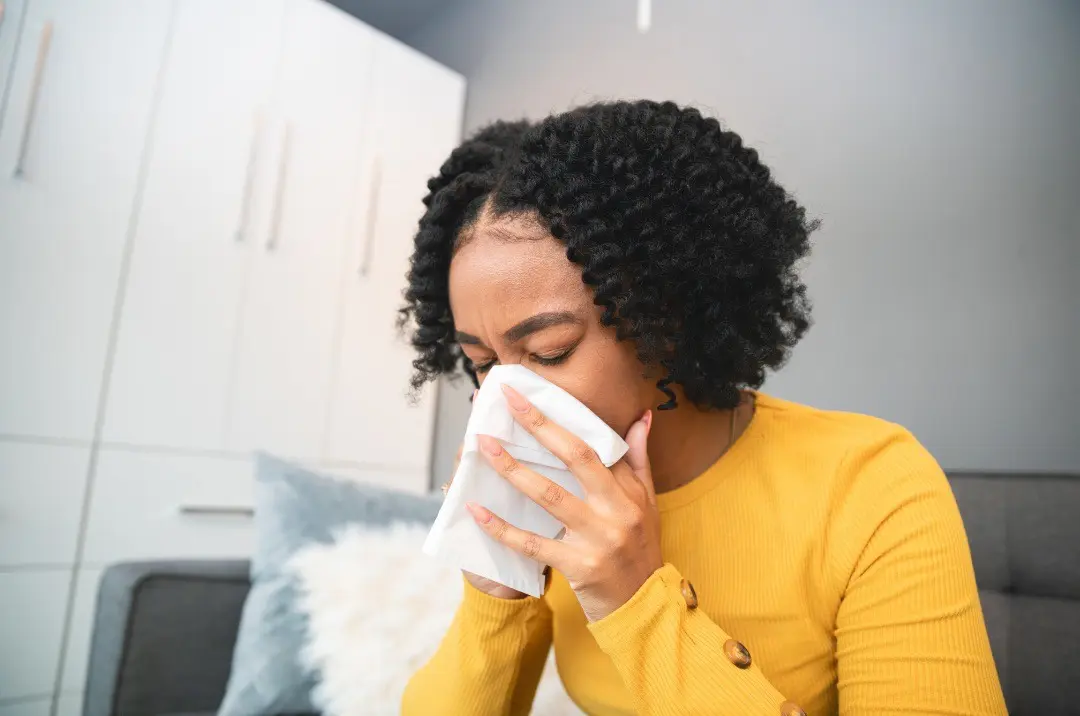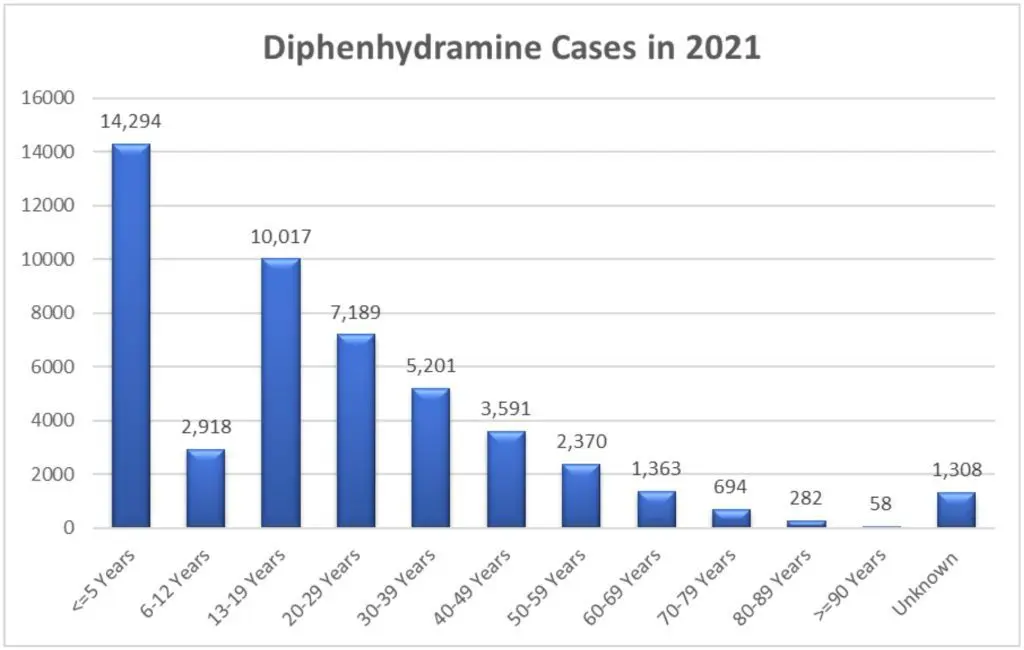Diphenhydramine (Benadryl®) Overdose

What is Benadryl?
Diphenhydramine is an over the counter antihistamine used to treat a variety of problems including itching, hives, upper respiratory infection (URI), motion sickness and insomnia. It is also used in combination with other ingredients in many cold and cough medications. Many people may know of diphenhydramine as the brand Benadryl® which comes in liquid, chewables, tablets, capsules, and quick dissolve strips. Other common over-the- counter products that contain diphenhydramine include Nytol®, Sominex®, Tylenol® PM, and Vicks ZzzQuil®.
Is a Benadryl Overdose Possible?
Diphenhydramine can cause drowsiness and dizziness even in safe doses, so it is important to use caution when driving, operating machinery, or performing other hazardous activities. Children under 6 years old should not be given diphenhydramine without permission from a doctor. You should ask a healthcare professional before giving any cold and cough medicine to a child.
Diphenhydramine has been misused and abused by teens and adults. Many believe that because a medication is over the counter it is safe—but this is not always the case. Misuse and abuse of diphenhydramine can cause severe symptoms including hallucinations, seizures, and heart problems which can be life threatening. It is important to speak with your teens about the trends that they are seeing online and to answer any questions they may have. Additionally, if you have an older teen that can take their own medication, they should be instructed on how to read a medicine label and the dangers of medication misuse.
How many Benadryl overdose cases does Poison Help receive?
In 2021, Poison Centers managed 49,285 exposures involving diphenhydramine. Most cases were for children five years and younger. Young children are attracted to the bright color of the product, and liquid varieties of diphenhydramine and may take the medicine by mistake.

When should I call or use Poison Help?
You have two easy ways to receive help during a poison exposure:
- Call 1-800-222-1222 and speak with a live poison expert
- Get online poison help
Both services are free,confidential and available 24 hours a day, 7 days a week. Information is provided by specialists in poison information who are nurses, pharmacists, and physicians.
Benadryl Overdose Prevention Tips
- Talk to your doctor before using diphenhydramine. Diphenhydramine can interact with some prescription and over-the-counter drugs.
- Alcohol may increase drowsiness and dizziness while taking diphenhydramine.
- Store all medicine and supplements up and away and out of sight of young children. This includes diphenhydramine products, like Benadryl®.
- Talk with your teens/tweens about safe medicine usage and social media trends.
- Limit the number of over-the-counter medicines kept in the home including diphenhydramine.
- Call the Poison Help line at 1-800-222-1222 immediately if someone has taken more than the label’s recommended dose or if you have questions involving diphenhydramine.
For the Media:
Please cite this data as “National Poison Data System, America’s Poison Centers.” Any and all print, digital, social, or visual media using this data must include the statement: “You can reach your local poison center by calling the Poison Help line: 1-800-222-1222. To save the number in your mobile phone, text POISON to 301-597-7197.” Email Media@poisoncenters.org or call 703-894-1863 for more information, questions, or to submit request data.